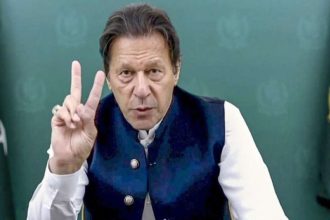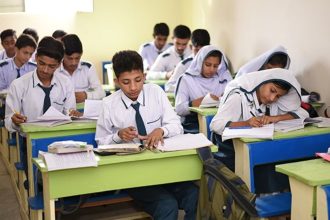Even though Prime Minister Nawaz Sharif himself proclaimed that an impartial inquiry into the alleged mismanagement of the Nandipur Power Project (NPP) will vindicate the govt, there seems to be no movement on efforts to find out what actually went wrong in the multi-billion rupee project.
Former Supreme Court judge, retired Justice Nasir Aslam Zahid has turned down the PM’s offer to head an inquiry commission into the NPP scandal. Sources say that Justice Zahid expressed his unavailability to lead the inquiry due to personal commitments.
Meanwhile, embattled NPP Managing Director Captain M. Mehmood has also called into question the formation of a separate inquiry committee — initiated by the National Electric Power Regulatory Authority (Nepra) — saying, “Since the forum evoked is not appropriate, therefore, a conflict of interest can occur.”
Moreover, a private audit firm selected by the government to scrutinise the 425MW NPP has refused to conduct a commercial and technical appraisal of the project and has only agreed to examine the financial side of the project.
As a result, the auditor general of Pakistan (AGP) is the only third party that is assessing the project and looking into the reasons behind the delays incurred and examining how, after an investment of Rs57 billion, the plant still failed to produce electricity.
However, with the incumbent AGP Rana Asad Amin being a close confidant of Finance Minister Ishaq Dar, critics of the government argued that a free and impartial audit of the much-touted NPP was not possible.
Former AGP Buland Akhtar Rana, who was unceremoniously removed through a reference before the Supreme Judicial Council, claims he was victimised because he questioned the federal government’s unchecked spending in the power sector.
With Prime Minister Nawaz Sharif back in the country after his three-week trip abroad, the focus will now be on how to get third-party clearance for the NPP.
Talking to Dawn, a senior government official linked to the power sector said, “There were so many missing links in the NPP — primarily because Punjab Chief Minister Shahbaz Sharif was in the driving seat all along — that responsibility has to be fixed on somebody.”
There are a few obvious questions which have to be answered even if it is just the AGP conducting an audit of the NPP, added the official.
“First of all, why did the Khawaja Asif-led Ministry of Water and Power cede control of the NPP to the Punjab chief minister, who babysat the project through a handpicked bureaucrat,” he asked.
“Who re-negotiated the bloated cost of the NPP to around Rs58 billion and how? What happened to the hoard of engineers, including the managing director, who were sent abroad for technical training to run the NPP?”
“The NPP is a classic example of management failure because the government wanted to complete it on war-footing; therefore, rules and regulations were violated at every step of the way,” the official said.
The official explained that even if the Punjab chief minister had taken over the project, for all practical purposes, it remained the responsibility of the federal government.
In a recent letter to the Genco Holding Company, which has constituted a four-member committee to fix responsibility for the inordinate delay in power generation at the plant, Captain M. Mehmood raised some interesting questions.
For example, he said, three of the four inquiry members hailed from Sindh, “which raises the fear that the proceedings of the committee may get steered by political pressures and differences,” as the NPP was Punjab-based.
Unaware that Justice Zahid had refused to head the inquiry commission, Captain Mehmood wrote that a Genco-led investigation “can potentially influence the inquiry that’s to be conducted under Justice Zahid.”
“This shows a complete lack of coordination between the NPP MD and the ministry regarding a free and fair investigation, which the PM had repeatedly committed to,” said a ruling party MNA. “The sooner the government managed to absolve itself of the blame in this controversy, “the better it would be able to counter political opponents,” he said.





